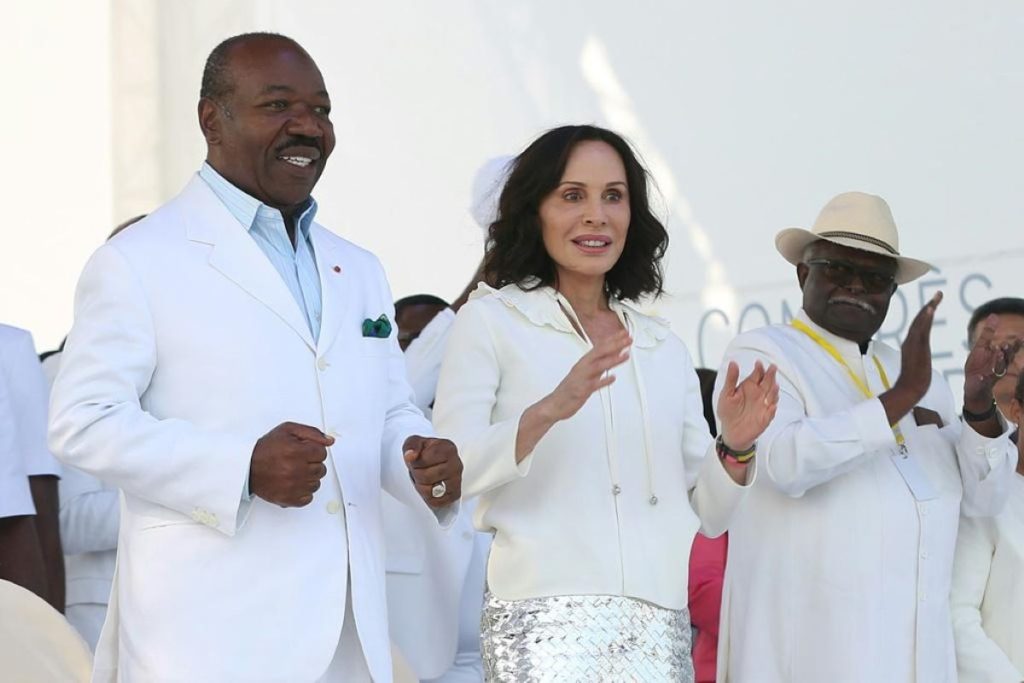Following a non-violent military takeover a year ago that ousted Gabon’s president, Ali Bongo Ondimba, and terminated 55 years of family governance, the future of the former dynasty remains uncertain.
Bongo had governed the oil-rich nation in West Africa since 2009 before being deposed by military leaders on August 30, 2023, shortly after being declared the winner in a presidential election.
Currently 65 years old, the ousted leader resides in his private estate in Libreville and can leave the country, according to the government. However, his French lawyer, Francois Zimeray, claims he is “deprived of freedom and contact with the outside world”.
Sylvia, Bongo’s 61-year-old wife, and their eldest son, 32-year-old Noureddin Bongo Valentin, are still detained in Libreville’s central prison due to allegations of embezzlement. Their lawyers have denounced the conditions of their confinement.
Gabon’s new government, under the leadership of General Brice Oligui Nguema, has accused the Bongo family of widespread corruption, including manipulating the incapacitated head of state after Ali Bongo suffered a stroke in 2018 and rigging the last elections.
On the night of the coup, Gabon’s national television broadcasted the arrest of Noureddin Bongo, a close adviser to his father, and other officials alongside suitcases allegedly containing confiscated cash from their homes.
Gabon’s military has charged Sylvia and Noureddin with treason, embezzlement, corruption, and falsifying the president’s signature.
According to the World Bank, Gabon is among the wealthiest countries in Africa per capita, but one-third of the population still lives below the poverty line.
The interim government of Oligui has not provided much information about the detainees and the case status.
Unconfirmed reports have been made, with some sources claiming that the family was being kept in a concealed mansion and had been given “authorisation” to leave for gatherings with their relatives towards the end of last year. The Gabonese government has not commented on these allegations.
Gisele Eyue Bekale, the family’s Gabonese attorney, informed AFP that she had only met with the prisoners three times since the coup in the company of the investigating magistrate.
“My clients told me that all their assets had been seized and transferred, even those acquired before 2009”, the year Ali Bongo took over from his father Omar after nearly 42 years in power, she said.
Noureddin’s detention conditions were “concerning”, she added.
“The last time I saw him, he told me he was in isolation, completely locked up” and without a “right to exercise or access to his lawyer”.
His mother “does not receive any visitors and, like all inmates, is not allowed her phone”.
Zimeray, the French lawyer for Ali, Sylvia and Noureddin — all dual French and Gabonese nationals — told AFP that Sylvia and Noureddin had been “incarcerated outside of any legal framework, subjected to torture and bad treatment, in violation of all the rules”.
Zimeray in May filed a new complaint alleging the family had suffered “illegal arrest, detention aggravated by acts of torture and acts of barbarism” after an initial complaint in October was dismissed.
Joanna Boussamba, a spokeswoman for the civil society organisation Copil Citizen, said she worried about a “lack of visibility on the case and the prospects for the trial”.
She said the Bongo case had become a “taboo” in Gabon.
“We can expect the worst and find out six months from now that they are all out,” Boussamba told AFP.
“The Gabonese people expect justice to be served, that they pay back the money they stole, and for this money to go back into the coffers of the state, that they are tried, sentenced and serve their time.”
“We are all thirsty for justice,” said Ponce Melchior Nomamina, a 28-year-old photographer interviewed by AFP in a working-class neighbourhood of the capital.
“Apparently, they are delinquents. Those who were in power before misused their positions and the assets they were responsible for,” he said.
“I think they should be punished.”

